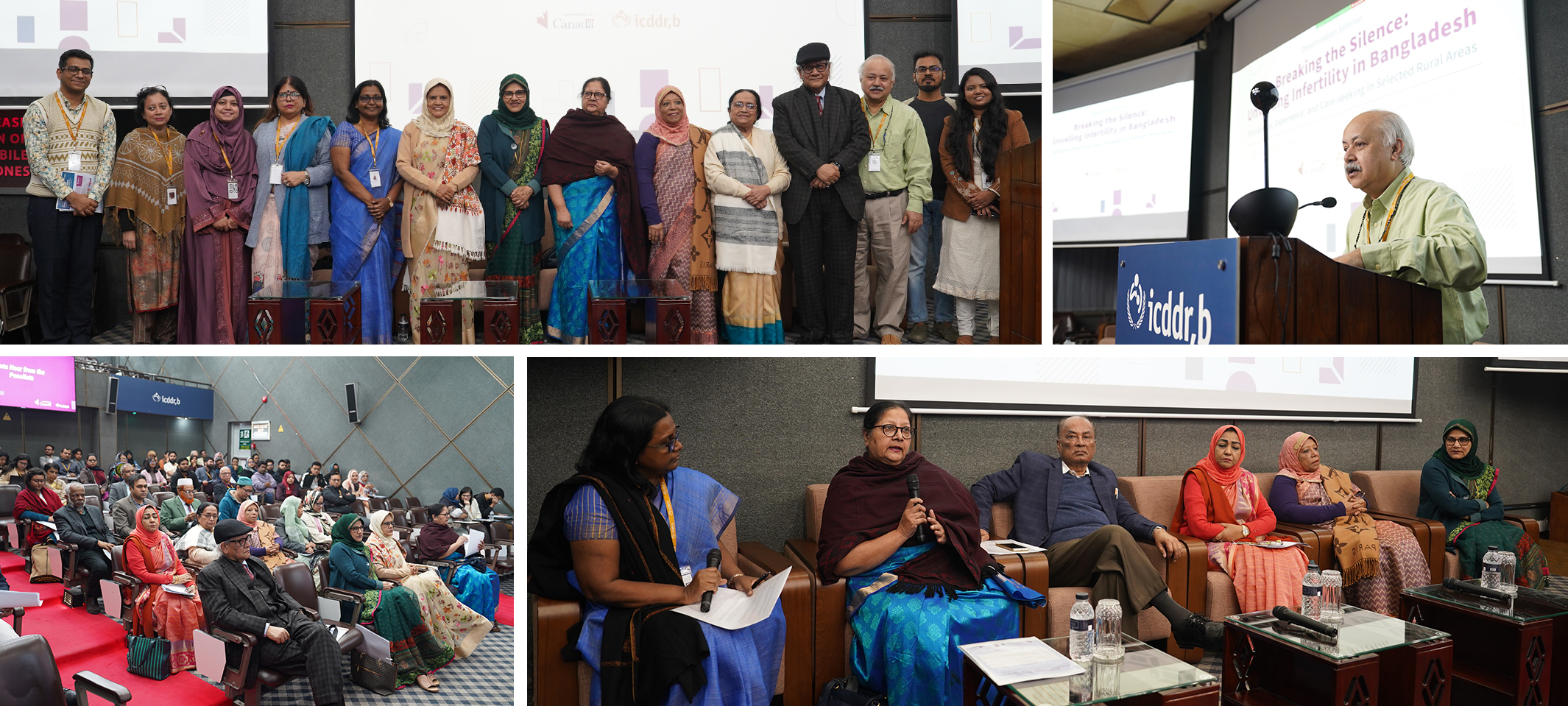‘Historically society solely blamed women for infertility, neglecting the role of men but times have changed, and there is now a more inclusive approach to infertility treatment’, renowned gynecologist and obstetrician Dr T A Chowdhury shared the transformative perspective in a dissemination seminar titled ‘Breaking the Silence: Unveiling Infertility in Bangladesh: Prevalence, Experience, and Care-seeking in Selected Rural Areas’ on 23 January 2024, at the icddr,b Sasakawa Auditorium.
Dr Shams EI Arifeen, Project Director of AdSEARCH by icddr,b, and Senior Director and senior scientist of the Maternal and Child Health Division at icddr,b, welcomed attendees. Farah Naz Rahman, Shanaj Sultana Sathi, and M Moinuddinn Haider shared the preliminary findings on the prevalence of infertility and health-seeking behaviour of infertile couples, social implications of infertility and care-seeking experiences with availability and challenges in service provision from a comprehensive study,
Following the presentation, a distinguished panel engaged in a thought-provoking discussion. The panelists included Dr T A Chowdhury, Prof Farhana Dewan, President of the Obstetrical and Gynaecological Society of Bangladesh (OGSB), Prof. Firoza Begum, President of the Feto-Maternal Medicine Society of Bangladesh. Prof. Parveen Fatima Former chairman of the Department of Reproductive Endocrinology & Infertility, Bangabandhu Sheikh Mujib Medical University, and Dr Rashida Begum, Secretary General of Fertility and Sterility Society of Bangladesh. They emphasised the overlooked human rights aspects of infertility in global and national SRHR policies and discussed the limited information available on the experiences of infertile couples in Bangladesh. The panelists also explored both opportunities and challenges in infertility treatment within the country. Dr Ahmed Ehsanur Rahman presented a comprehensive plan for the way forward in addressing these issues.
Around 49 million couples experience infertility globally. To understand the local landscape, AdSEARCH by icddr,b undertook a cross-sectional study at the Matlab and Baliakandi upazilas from October to December 2022 involving a household survey among 2,948 currently married women aged between 20-49 years. Despite having key human rights aspects, Infertility is being neglected in the global and national SRHR policies and agenda. Infertility is an emerging public health problem and is strongly linked to several Sustainable Development Goals.
